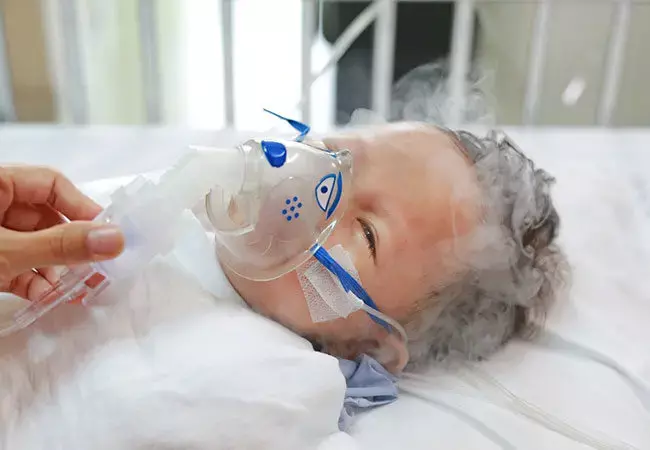- Home
- Medical news & Guidelines
- Anesthesiology
- Cardiology and CTVS
- Critical Care
- Dentistry
- Dermatology
- Diabetes and Endocrinology
- ENT
- Gastroenterology
- Medicine
- Nephrology
- Neurology
- Obstretics-Gynaecology
- Oncology
- Ophthalmology
- Orthopaedics
- Pediatrics-Neonatology
- Psychiatry
- Pulmonology
- Radiology
- Surgery
- Urology
- Laboratory Medicine
- Diet
- Nursing
- Paramedical
- Physiotherapy
- Health news
- Fact Check
- Bone Health Fact Check
- Brain Health Fact Check
- Cancer Related Fact Check
- Child Care Fact Check
- Dental and oral health fact check
- Diabetes and metabolic health fact check
- Diet and Nutrition Fact Check
- Eye and ENT Care Fact Check
- Fitness fact check
- Gut health fact check
- Heart health fact check
- Kidney health fact check
- Medical education fact check
- Men's health fact check
- Respiratory fact check
- Skin and hair care fact check
- Vaccine and Immunization fact check
- Women's health fact check
- AYUSH
- State News
- Andaman and Nicobar Islands
- Andhra Pradesh
- Arunachal Pradesh
- Assam
- Bihar
- Chandigarh
- Chattisgarh
- Dadra and Nagar Haveli
- Daman and Diu
- Delhi
- Goa
- Gujarat
- Haryana
- Himachal Pradesh
- Jammu & Kashmir
- Jharkhand
- Karnataka
- Kerala
- Ladakh
- Lakshadweep
- Madhya Pradesh
- Maharashtra
- Manipur
- Meghalaya
- Mizoram
- Nagaland
- Odisha
- Puducherry
- Punjab
- Rajasthan
- Sikkim
- Tamil Nadu
- Telangana
- Tripura
- Uttar Pradesh
- Uttrakhand
- West Bengal
- Medical Education
- Industry
Palivizumab Prophylaxis Among high-risk Children with RSV Infection: AAP Guidance

The updated recommendations regarding Palivizumab Prophylaxis Among increased risk of hospitalization Children and infants with Respiratory Syncytial Virus Infection were published in the Pediatrics.
Palivizumab was licensed in June 1998 by the Food and Drug Administration for the reduction of serious lower respiratory tract infection caused by a respiratory syncytial virus (RSV) in children at increased risk of severe disease. Since that time, the American Academy of Pediatrics has updated its guidance for the use of palivizumab 4 times as additional data become available to provide a better understanding of infants and young children at greatest risk of hospitalization attributable to RSV infection.
The updated policy recommendations focus on new information regarding the seasonality of RSV circulation, palivizumab pharmacokinetics, the changing incidence of bronchiolitis hospitalizations, the effect of gestational age and other risk factors on RSV hospitalization rates, the mortality of children hospitalized with RSV infection, the effect of prophylaxis on wheezing, and palivizumab-resistant RSV isolates.
Following is quick summary of the latest policy recommendations:
• In the first year of life, palivizumab prophylaxis is recommended for infants born before 29 weeks, 0 days' gestation.
• Palivizumab prophylaxis is not recommended for otherwise healthy infants born at or after 29 weeks, 0 days' gestation.
• In the first year of life, palivizumab prophylaxis is recommended for preterm infants with CLD of prematurity, defined as birth at <32 weeks, 0 days' gestation and a requirement for >21% oxygen for at least 28 days after birth.
• Clinicians may administer palivizumab prophylaxis in the first year of life to certain infants with hemodynamically significant heart disease.
• Clinicians may administer up to a maximum of 5 monthly doses of palivizumab (15 mg/kg per dose) during the RSV season to infants who qualify for prophylaxis in the first year of life. Qualifying infants born during the RSV season may require fewer doses. For example, infants born in January would receive their last dose in March.
• Palivizumab prophylaxis is not recommended in the second year of life except for children who required at least 28 days of supplemental oxygen after birth and who continue to require medical intervention (supplemental oxygen, chronic corticosteroid, or diuretic therapy).
• Monthly prophylaxis should be discontinued in any child who experiences a breakthrough RSV hospitalization.
• Children with a pulmonary abnormality or neuromuscular disease that impairs the ability to clear secretions from the upper airways may be considered for prophylaxis in the first year of life.
• Children younger than 24 months who will be profoundly immunocompromised during the RSV season may be considered for prophylaxis
• Insufficient data are available to recommend palivizumab prophylaxis for children with cystic fibrosis or Down syndrome.
• The burden of RSV disease and costs associated with transport from remote locations may result in broader use of palivizumab for RSV prevention in Alaska Native populations and possibly in selected other American Indian populations.
• Palivizumab prophylaxis is not recommended for the prevention of healthcare-associated RSV disease.
Reference:
Updated Guidance for Palivizumab Prophylaxis Among Infants and Young Children at Increased Risk of Hospitalization for Respiratory Syncytial Virus Infection by Committee on infectious diseases and bronchiolitis guidelines committee published in the Pediatrics: Official journal of the American Academy of Pediatrics
DOI: https://doi.org/10.1542/peds.2014-1665
Dr. Shravani Dali has completed her BDS from Pravara institute of medical sciences, loni. Following which she extensively worked in the healthcare sector for 2+ years. She has been actively involved in writing blogs in field of health and wellness. Currently she is pursuing her Masters of public health-health administration from Tata institute of social sciences. She can be contacted at editorial@medicaldialogues.in.
Dr Kamal Kant Kohli-MBBS, DTCD- a chest specialist with more than 30 years of practice and a flair for writing clinical articles, Dr Kamal Kant Kohli joined Medical Dialogues as a Chief Editor of Medical News. Besides writing articles, as an editor, he proofreads and verifies all the medical content published on Medical Dialogues including those coming from journals, studies,medical conferences,guidelines etc. Email: drkohli@medicaldialogues.in. Contact no. 011-43720751


